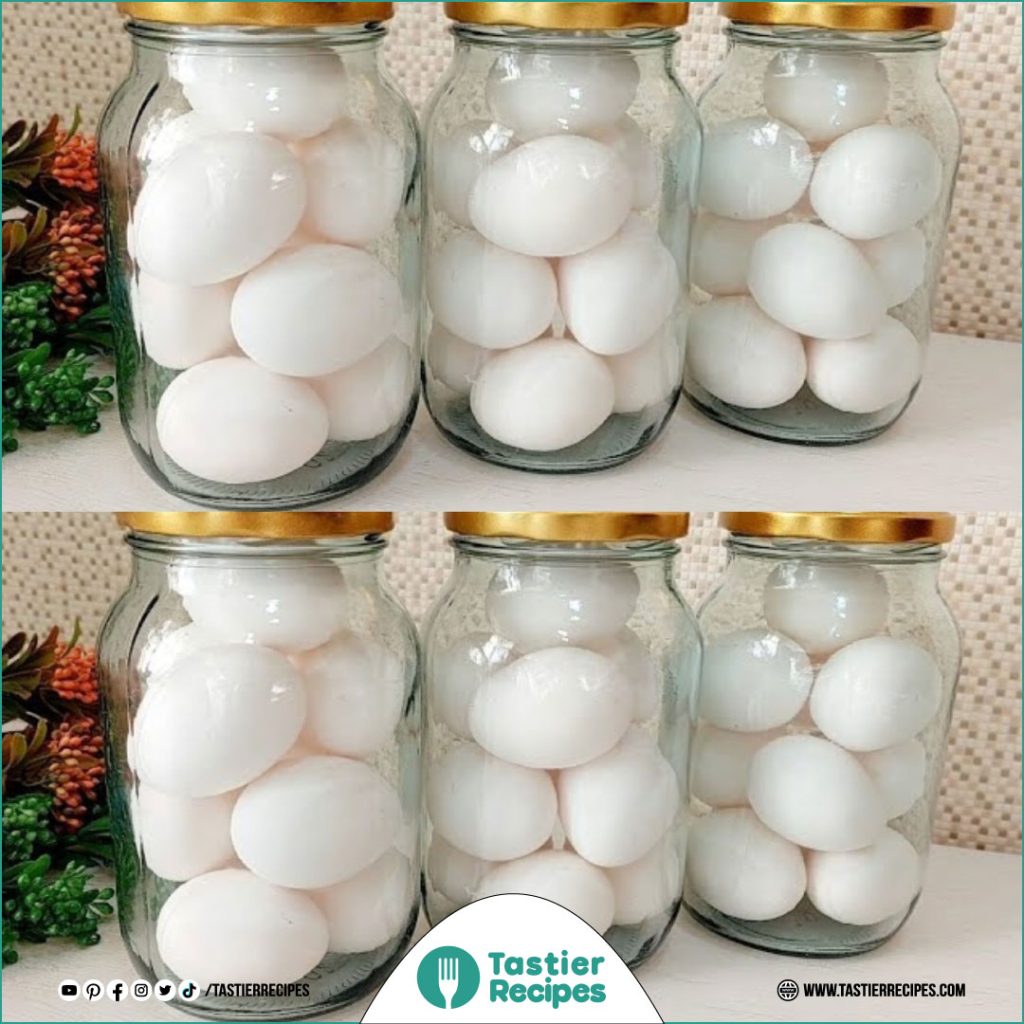Preserving Eggs Without Refrigeration: Time-Tested Techniques

ADVERTISEMENT
Eggs stand as a kitchen essential, renowned for their adaptability and nutritional richness. But what if you’re short on fridge space or seek to store eggs for extended periods, particularly if you raise chickens? Explore the enduring techniques for keeping eggs fresh sans refrigeration. Discover these traditional methods ensuring a steady supply of delectable eggs whenever you desire.
Understanding Egg Preservation: Eggs possess a natural shield known as the “bloom,” safeguarding them against bacteria and maintaining their freshness. Post-collection washing strips this protective coating, necessitating refrigeration for store-bought eggs. Yet, conserving this innate barrier allows eggs to thrive at room temperature for extensive durations.
Traditional Egg Preservation Techniques:

- Lime Water Preservation:
- Among the ancient and most efficient methods lies storing eggs in lime water, extending their freshness for up to a year.
- Combine one ounce of hydrated lime with a quart of water, ensuring thorough mixing.
- Submerge the eggs completely in the lime solution within a spacious container.
- Safely store the container in a cool, dry location.
- Utilizing Mineral Oil:
- Coating eggs lightly with mineral oil seals the shell pores, preserving internal moisture and deterring air ingress.
- Warm a small quantity of food-grade mineral oil, then apply a thin layer onto each egg using gloves.
- Place the coated eggs in an egg carton and store them in a cool, dark spot.
- Salt or Sand Box Method:
- Entombing eggs within a box of salt or clean, dry sand offers another means of preservation, spanning several months.
- Ensure the eggs are nestled pointed end down and entirely submerged in the medium.
- Effective implementation necessitates storage in a cool environment.
Conclusion
Whether you tend to backyard chickens or prefer bulk purchases, these egg-preserving techniques prove invaluable. Beyond elongating shelf life, they uphold flavor and nutritional integrity. Embrace these time-honored practices to savor fresh, nutritious eggs for months, underscoring the enduring efficacy of traditional food preservation methods. Experiment with these approaches and experience the simplicity and efficacy they offer.
Read More: Unlock the Secret to Perfectly Sliced Cheese with This Hack
FAQ
- Question: How do traditional preservation methods keep eggs fresh without refrigeration?
Answer: Traditional preservation methods such as storing eggs in lime water, coating them with mineral oil, or burying them in salt or sand help seal the eggshell pores, preventing air and bacteria from entering and thus prolonging freshness. - Question: What is the role of the “bloom” in egg preservation?
Answer: The “bloom” is a natural protective coating on eggs that shields them from bacteria and helps maintain freshness. Preserving this coating allows eggs to be stored at room temperature for extended periods without spoiling. - Question: Can store-bought eggs be preserved using these traditional methods?
Answer: While store-bought eggs are typically washed, removing the protective bloom, they can still benefit from traditional preservation techniques like coating with mineral oil. However, the effectiveness may vary compared to eggs with an intact bloom. - Question: How long can eggs be stored using the lime water solution method?
Answer: Eggs stored in a lime water solution can remain fresh for up to a year when stored in a cool, dry place. This method has been used for centuries to extend the shelf life of eggs without refrigeration. - Question: Is mineral oil safe for consumption when used for egg preservation?
Answer: Yes, food-grade mineral oil is safe for consumption when used in small quantities for coating eggs. It forms a protective barrier on the eggshell without affecting the taste or quality of the egg.
ADVERTISEMENT